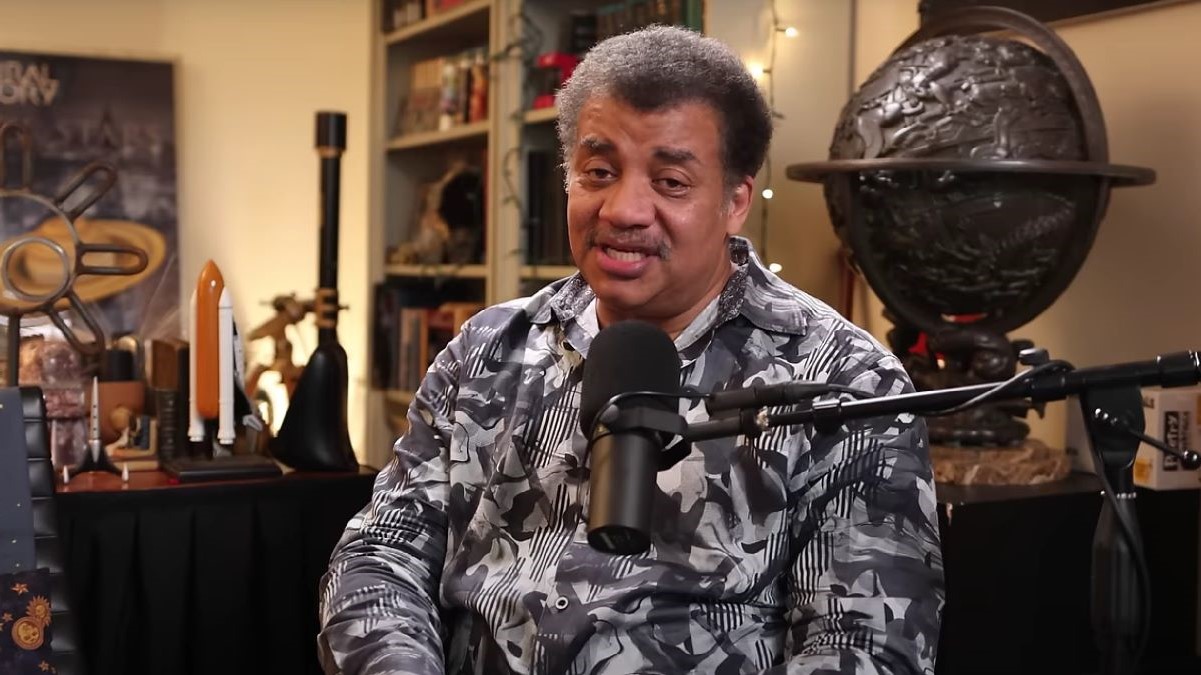Watching Neil deGrasse Tyson Take Terrence Howard to School Is So Satisfying

The greatest thing about the internet is knowledge being more accessible than ever. The worst thing about it is also knowledge being more accessible than ever, allowing everyone to believe that they can become an expert in a topic without putting in actual study.
Thankfully, there are actual experts who put in the years of work available to correct those assumptions.
Famed astrophysicist Neil deGrasse Tyson just dropped a new episode of his YouTube series, Star Talk, where “his comic co-hosts, guest celebrities & scientists discuss astronomy, physics, and everything else about life in the universe.” This recent episode, “My Response to Terrence Howard,” is compelling because of the compassion with which deGrasse Tyson uses Howard’s paper to explain the importance of peer review and reproducibility in science.
Why does Terrence Howard warrant an astrophysicist’s response?
Since 2015, when he was first performing in his role as the patriarch of the Lyon family on FOX’s Empire, Howard has been preaching the gospel of “Terryology,” where he attempts to disprove everything we know about math, including one times one equaling one. According to Howard (and “Terryology”), one times one equals two.
Last month, Howard appeared on The Joe Rogan Experience, that bastion of reputable information, to talk about his math treatise, which he’s turned into a book. In the process of discussing his ideas about math, he name-checked deGrasse Tyson, who’d been an acquaintance and to whom he sent his 36-page treatise for his thoughts eight years ago.
How did deGrasse Tyson respond?
Apparently, Howard didn’t like the notes he got back then. deGrasse Tyson, however, created this video to explain that, far from trying to disrespect Howard and his ideas, he was simply applying the usual rigor of a peer review that all mathematicians and scientists go through whenever a new idea is presented.
You can watch the full video above. While deGrasse Tyson goes point by point through Howard’s ideas (blowing a hole through each and every one), the real value of this video is in his explanation that just because a topic interests you and you’ve done a lot of research in it as a hobbyist, doesn’t mean you’re qualified to speak on it as an expert.
He explains the Dunning-Kruger Effect, “a cognitive bias in which people with limited competence in a particular domain overestimate their abilities.” He notes that this isn’t a commentary on someone’s intelligence; it simply means that someone who doesn’t have a breadth of knowledge in a particular area might overestimate their abilities in that area simply because they don’t know enough to accurately judge their own knowledge.
Allow me to gently nudge you toward the YouTube channel of Angela Collier, a theoretical physicist who makes great, accessible content about science (and other stuff), who made a great video about “physics crackpots” that breaks down a lot of this.
Meanwhile, deGrasse Tyson emphasizes again and again that scientific innovation only happens because scientists correct each other all the time. What’s more, scientific innovation is based in large part in knowing what ideas have been explored before and knowing what people have already disproven or dismissed. One’s “big idea” means nothing if someone already disproved that same “big idea” over a century ago. You not knowing about it doesn’t change the fact that it was, indeed, disproven. This is why years of study matter. It’s not “elitist.” It’s simply knowing enough about the field you love to know what’s been done and not done, so that you can contribute to the conversation in a worthwhile manner.
My favorite quote from deGrasse Tyson’s video is “To be a genius is to be misunderstood. But to be misunderstood is not to be a genius.” That’s the gentlest way in which deGrasse Tyson could’ve asserted that just because no one knows what the heck you’re talking about doesn’t mean that you must be a genius.
It could just mean that you’re aggressively, willfully ignorant.
Have a tip we should know? tips@themarysue.com